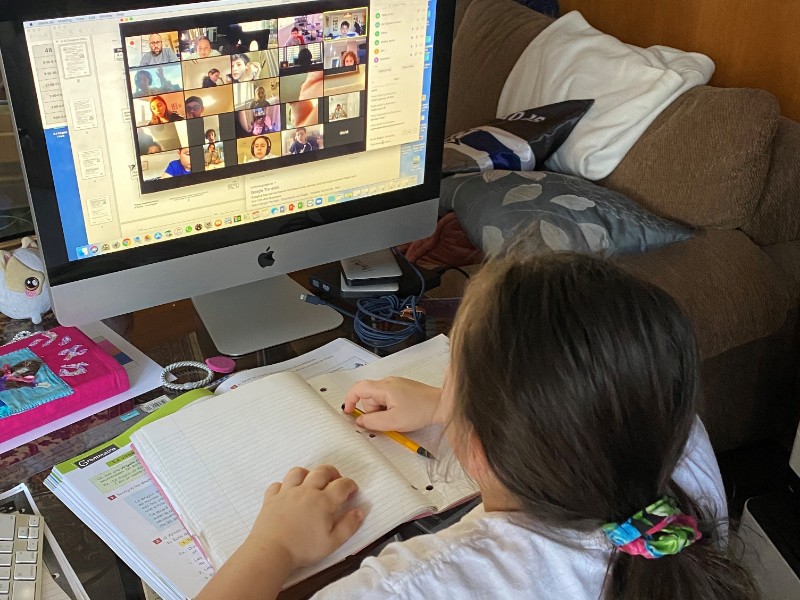Through technology, Montreal’s Jewish day schools are attempting to keep their students’ learning apace, as well as provide a sense of connection while they are at home.
The Bronfman Jewish Education Centre (BJEC), a Federation CJA agency, is co-ordinating the use of the interactive Zoom video conferencing system as a real-time, real-person distance-learning tool with 13 schools.
As of March 17, the schools’ teachers began online instruction. With BJEC’s assistance, daily schedules for each grade level are being drawn up, mirroring those the students would have at their school, said BJEC executive director Cooki Levy.
BJEC staff have been giving teachers a crash course in how to use the technology during the mandatory two-week closure.
“If Rabbi Schwartz normally gives a class at 4 p.m. in Torah, that is what they will get a home,” she explained.
“We should be extremely proud that our schools have stepped up to the plate to help their families provide structure to their students’ days, as well as a window to the world and a source of connection and support and comfort.”
As important as keeping up with what they need to learn is providing routine to the kids and guidance for the parents, said Levy.
“Children need routine; some are a little lost. Parents also need help. There’s a lot of anxiety and confusion. Children are asking why are we not in school,” she said.
BJEC is planning to hold regular conversations with parents to answer their questions via Zoom. “It’s wonderful that the school is providing a community for families … We can’t expect parents to be homeschoolers, so we are bringing the school into the home.”
It is modelling what some New York schools have been doing for a few weeks.
BJEC is collaborating with the Association of Jewish Day Schools, which is in touch with the provincial government to ensure educational requirements are met, she added.
The online contact is not limited to formal education. One school held a virtual birthday party for a child, she noted. BJEC can refer to resources for online activities parents can do with their kids. Agence Ometz, another federation agency, is offering virtual counselling to students.
“Some schools have gone the extra mile and are lending students who needed iPads or Chrome books, even walking out to cars so that parents could drive up to the school to pick up a computer,” she added.
Levy heard from the head of Yeshiva Gedola Merkaz Hatorah that the school is photocopying lesson packets for families that do not have an internet connection, which are delivered to the homes by volunteers.
At Akiva School, all teachers are engaging with their students from kindergarten to Grade 6 in two-hour sessions in the morning and afternoon, the assistant head of school Cindy Warren said.
“Students will be doing work in all three languages – English, French and Hebrew – and will also be able at various times during the week to participate in specialty sessions, such as art classes, mindfulness, and library,” she said.
“Our teachers have really stepped up in this time of crisis and the feedback from the parents has been amazing.”
Continuing education is not restricted to the young in these times. On March 17, Congregation Shaar Hashomayim began sharing a daily video, Dvar of the Day, similar to the teaching that otherwise takes place each morning at the daily minyan, Rabbi Adam Scheier said.
Meanwhile, Chai Lifeline Canada, a charity that provides support to families of children with life-threatening or lifelong illnesses, is appealing for donations of arts and crafts materials for those who are quarantined.
“While our hundreds of volunteers are currently limited in their ability to serve families in our usual manner, this initiative serves to continue to deliver our trademark joy to isolated children in quarantine, in hospitals or at home,” said executive director Mordechai Rothman.
Chai Lifeline asks that only new arts and crafts projects suitable for children of all ages be sent to or dropped off at its Montreal branch, 1090B Pratt Ave.







